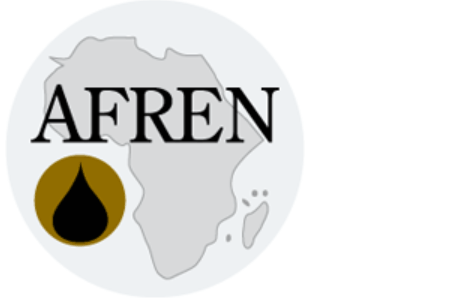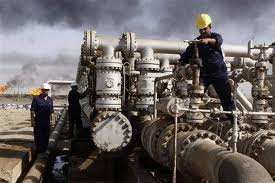
24/11/2011 14:08
by Joel Wing*
Exxon Mobile, one of the largest oil corporations in the world, finds itself in a quandary. In November 2011, it was revealed that it had signed a number of deals to explore for oil and gas in Iraq’s Kurdistan. The problem is that Baghdad considers any such agreement illegal, and has threatened to end Exxon’s contract to develop an oil field in southern Iraq in retaliation. The outcome of this dispute is not only important for Exxon, but could also influence the passage of a new hydrocarbons law in Iraq’s parliament.
On November 13, 2011, the Kurdistan Regional Government’s (KRG) Natural Resource Minister Ashti Hawrami announced that Exxon Mobile had signed a contract to work in Kurdistan. The two sides agreed to work on six oil and gas blocks in northern Iraq in October. Exxon was the first major oil company to come to terms with Kurdistan. The region has an estimated 45 billion barrels in oil reserves, along with 100,000-200,000 billion cubic feet of gas. It currently produces 150,000 barrels a day in oil from two fields, and wants to boost that to 1 million by 2015. The KRG is hoping to develop both these resources to increase its autonomy, and become a player in the region and in Europe’s energy trade. It can’t achieve that without bringing in more foreign companies, and especially majors like Exxon. The problem is that Baghdad has banned any companies that operate in Kurdistan from doing work in the rest of the country
Baghdad has strenuously objected to the Exxon deal, which has angered the Kurds. The head of contracts and licensing at the Oil Ministry told the press that Exxon had to choose between its investments in southern Iraq and those in the north. He went on to say that the Ministry sent three letters to the company warning them about entering Kurdistan. Deputy Premier Hussein Shahristani who is in charge of energy, has repeatedly told Exxon of the consequences of its actions. For years now, Shahristani has claimed that all the Kurds’ oil and gas deals are illegal, because they did not go through the central government. He recently threatened sanctions against Exxon if it continued, which could mean that it would lose its operations in southern Iraq. Exxon currently runs the West Qurna 1 oil field in Basra along with Royal Dutch Shell, and is leading the construction of a large water injection plant to help with the extraction of oil for several fields in Basra. Finally, both Prime Minister Nouri al-Maliki and Oil Minister Abdul Karim Luaibi corresponded with Exxon as well. In the past, Baghdad has blacklisted companies that chose to work in Kurdistan. The Kurds of course, are furious at these actions. On November 17, senior oil officials from Baghdad and the KRG met, and were hoping for some sort of compromise, but the central government proved unwilling to do so. Oddly enough, Exxon has remained silent during this entire controversy over its actions. The basis of the dispute between the KRG and Baghdad is their conflicting interpretations of the constitution. Article 112 says that the central and regional governments will manage the extraction of natural resources, and that they will work together to formulate strategic policies on how to exploit them. The Maliki government has taken that to mean that they are in the control of all contracts and development, and in practice has not included anyone else in decisions. The KRG on the other hand, believes that they have control of the oil and gas in their region, and can sign their own contracts as a result. The central government has largely held the upper hand because most of the oil and gas are located in southern Iraq, and it controls the export pipelines. The Kurds have been able to attract roughly 40 companies however, but most of them are only involved in exploration rather than actual production, and only two fields are allowed to export petroleum under a deal cut between Kurdistan and Baghdad. This argument over who has authority to sign deals is now playing out with Exxon.
The central government’s actions have been enough to scare off other major oil companies from Kurdistan as well. Shell, Chevron, and Italy’s Eni were all allegedly in talks with Kurdistan over investing there, but the Exxon dispute has made them back off. All of those companies won rights to develop fields in southern Iraq in 2009, and Shell is hoping that a natural gas deal will be finalized soon as well. Again, since there are far larger oil and gas reserves in the south than Kurdistan, the foreign companies do not want to jeopardize that for the potential of Kurdistan.
The Exxon contract might also complicate talks over passing a new oil and gas law in parliament. The Exxon deal came right after there were reports that the KRG and Baghdad had agreed upon amendments to a draft hydrocarbons law that was drawn up back in 2007. Members of the oil and gas committee in the legislature for example, said that the two sides had compromised on foreign companies operating in the north. Now, the Maliki government may harden its stance, because it will lose face if it allows Kurdistan to not only to go ahead with the Exxon deal, but get its existing contracts accepted as well. That will be seen as a large victory for the KRG after all the objections Maliki and his officials have made.
How all of this will work out is yet to be seen. Baghdad may feel that Exxon’s work is too important in the south to blacklist it, and cancel its work at West Qurna 1 and the water injection plant. The prime minister has been very jealous of maintaining and expanding his power however, which could lead him to sanctioning Exxon. After all, there are plenty of other major oil companies operating in the south, and West Qurna is jointly operated with Shell, who could take over full responsibility. Maliki could also move against Exxon, and then go ahead and compromise with the Kurds over the oil and gas draft law having made his point. Exxon’s reaction is not known either, and they could end up backing down under the pressure from the central government. No matter which way things go it will definitely set a precedent over how oil and gas are developed within Iraq.
*With an MA in International Relations, Joel Wing has been researching and writing about Iraq since 2002. His acclaimed blog, Musings on Iraq, is currently listed by the New York Times and the World Politics Review. In addition, Mr. Wing’s work has been cited by the Center for Strategic and International Studies, the Guardian and the Washington Independent.
http://www.aknews.com/en/aknews/8/274378/






























